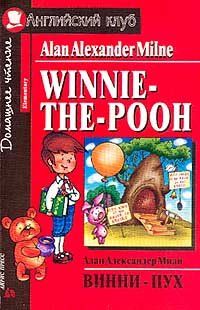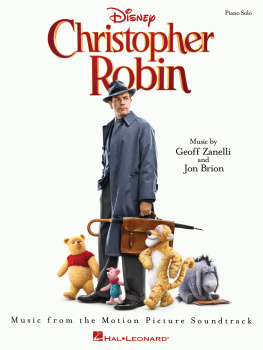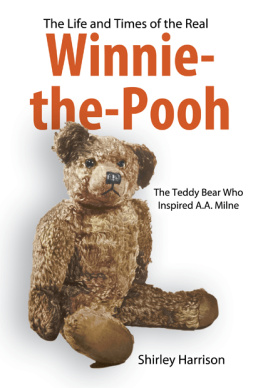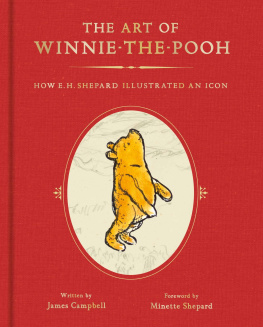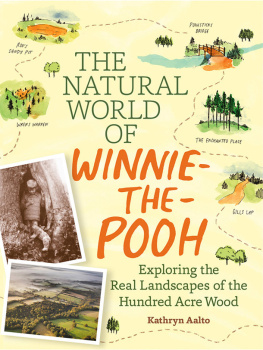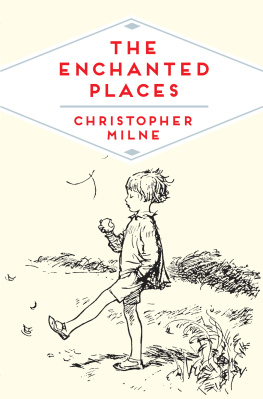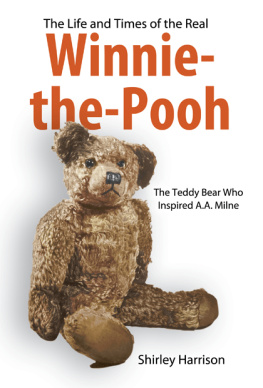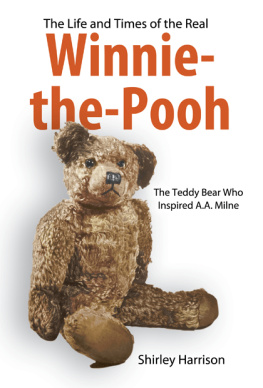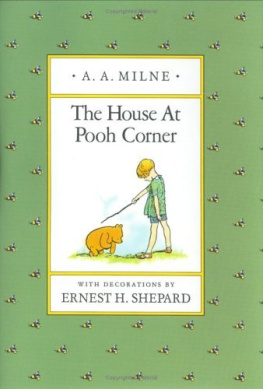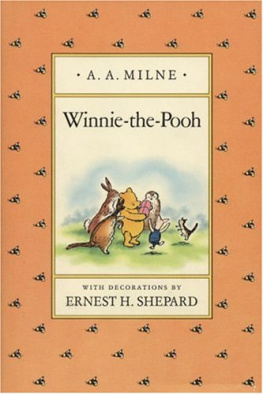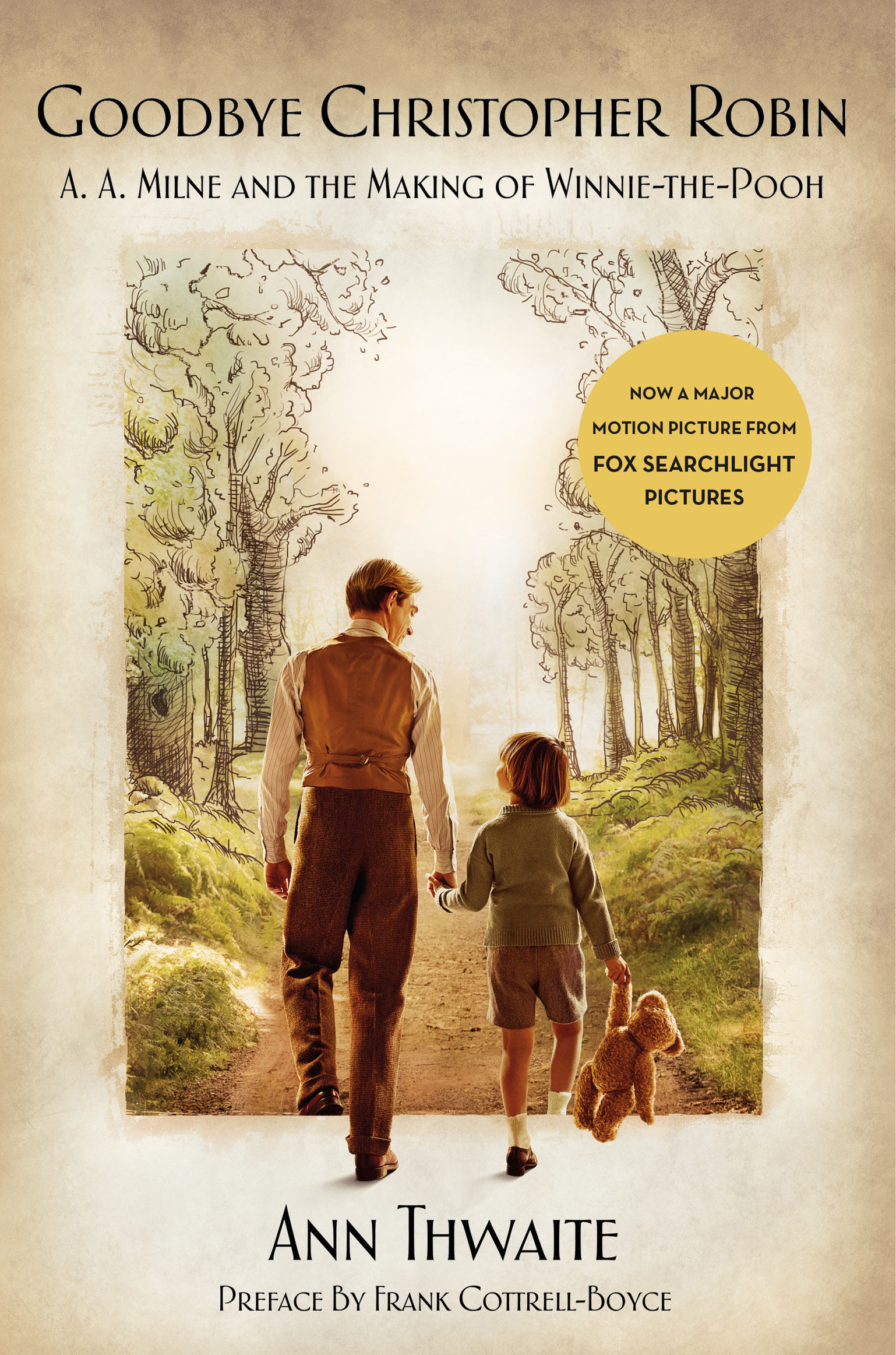Contents
Guide
Pagebreaks of the print version

The author and publisher have provided this e-book to you for your personal use only. You may not make this e-book publicly available in any way. Copyright infringement is against the law. If you believe the copy of this e-book you are reading infringes on the authors copyright, please notify the publisher at: us.macmillanusa.com/piracy.
For my dear daughters,
Emily, Caroline, Lucy and Alice,
with my love
BY FRANK COTTRELL-BOYCE
Success simplifies.
Quentin Crisp famously pointed out in a lecture that if he were to bring a distinguished old Yorkshireman onto the stage, the audience might be perplexed. But if he brought a polished abstract sculpture with a hole in the middle, the audience would cry out, Ah! Henry Moore! So A. A. Milnes long career as poet, playwright, polemicist, peace campaigner and novelist is completely eclipsed by four short childrens books which as he put it in 1952 he created
little thinking
All my years of pen-and-inking
Would be almost lost among
Those four trifles for the young.
The only thing thats changed since 1952 is that almost is no longer needed.
We are a society obsessed by the pursuit and adulation of success. We want to know The Secret of Your Success. And very very few things have been as successful as Winnie-the-Pooh. Pooh is one of those tiny handful of creations that are so enormously successful that we forget the infelicity of their name Boots, The Beatles, Star Wars, Winnie-the-Pooh. There are many books that tell us how certain successes were or can be achieved How I Lost Weight / Became President / Won Gold and How You Could Too. But very few that tell us what success feels like, what lies in its aftermath. One of the great Secrets of Success is that more often than not it is not quite the kind of success you were hoping for. You want to be Hamlet but youre hailed as a clown. And now you can never be any kind of Hamlet. You want to move on but your global hit exerts all the gravity of a planet and you are trapped in its orbit. Failure at least has the comfort of hope. Milnes life story as told here so compellingly by Ann Thwaite brilliantly illuminates what it feels like to be tested by huge, unlooked-for success.
It isnt easy. Frankenstein was so eclipsed by his own creation that it has robbed him of his name. Milne had a long, successful career in the theatre a world in which the writer gets used to a certain amount of petting and caressing. He gets to hear the audience call, Author! Author! No one did that at Pooh events. They wanted to see the bear and more troublingly the boy. Milne isnt of course the only writer to find himself swallowed up by his own creation. You could say Milnes friend and hero J. M. Barrie wrote with great commercial success after Peter Pan, but what does after Peter Pan mean? Peter Pan was, is and always will be. Barries other works are of their time. The over-arching drama of the Sherlock Holmes stories is the great detectives struggle, not with Moriarty, but with his own creators attempts to kill him off.
Biography gives us the chance to restore some human complexity to the icon, to see some of the shade and shadow hidden behind the glare of monstrous success. Milnes career traces a path through the suave, seductive world of London clubs of the twenties, through the green rooms of Shaftesbury Avenue all the way up to the Disney section of the app store on my phone. Its good to be reminded of just how long and demanding an apprenticeship Milne had served before he discovered Pooh. His peerless dialogue has its roots in his playwriting career. His study of classics and his work on Punch had given him the extraordinary ease and range he shows in the poems. Milnes are probably the last poems written that really cry out to be memorised and recited. They float like a butterfly and sting like a bee. I cant think of a poem more easily absorbed and enjoyed than Disobedience. I also cant think of one that captures so perfectly one of the true terrors of childhood.
Its good to be reminded, too, that Pooh was not universally adored, that writers who had admired Milnes lightness of touch turned on what they saw as the mawkishness of Pooh. Tonstant Weader, said Dorothy Parker, twowed up. Timothy Bobbin, wrote P. G. Wodehouse, goes hoppity hoppity hoppity hoppity hop. Cruellest of all is Richmal Cromptons brilliant skewering of the cult of Christopher Robin in the poem Homework Anthony Martin is doing his sums.
The adulation of the public is salt in the wound of the writer who has lost the admiration of his peers.
One of the unexpected treasures of this book is Ann Thwaites moving account of Milnes relationship with his brother Kenneth. Milnes letters to Kenneth uncover the well-spring of his creativity with all its childish joys, shadowed by tragedy. They are a real find. I was bewitched by this material when I read the book. Of course, when I was asked to write a film about Milne I left that out.
If success simplifies, film simplifies the simplification.
Or put another way, biography looks for what makes the individual different; drama looks for what we have in common. You can sell a million books if you write a good story well but a cultural phenomenon like Pooh needs something else. It needs to touch a raw nerve. That terrible review by Dorothy Parker also covered Christopher Morleys childrens book I Know a Secret which really is a pile of mawkish mush. There was a fashion for sentimentalising children on which people like Morley successfully cashed in. Milne on the other hand searched it for its source and found something true and terrible and enduring.
The House at Pooh Corner stands in a glade between two dark shadows the aftermath of one war that had just finished and the dread of one coming. No one who fought in the First World War knew it was the First World War. On the contrary, they had been told that they were fighting the war that would end all wars. It must have been with the most bitter irony and failure, then, that that generation Milnes generation watched their children march away to a war that they had been told would never happen. The Milnes received that dreaded telegram telling them their son was missing in action and presumed he was dead. This can happen to anyone. This is feared by everyone. Its there something you can build a film around. Its the shadow that makes the carefree days in the Hundred Acre Wood tremble and shimmer with their own fragility. They are suffused with a sense that happiness is possible and valid even though we know it is short-lived. Its a feeling that is expressed with peculiar intensity in the political situation of the between-the-war years but which applies to everyone, everywhere, all the time.
It is there, too, in the child who plays in the woods in Christopher Robin himself. On the one hand he is Robin Hood revelling in the freedom of the Greenwood but hes also a babe lost in the wood. What marks Christopher Robin out from other children in literature from William, say is that hes often absent from the adventures. Often his role is to come and put things right. Hes more like a kindly uncle than a child. Through the carefree forest he carries a burden of responsibility.
The other unusual thing about Christopher Robin of course is that he was to some extent a real boy. It also swallowed Christopher Robin. The difference between Winnie-the-Pooh and, say, Sherlock Holmes, is that Pooh did not just swallow Milne. Imagine if Barrie had called Peter Pan Peter Llewelyn Davies. When Czeslaw Milosz said, When a writer is born into a family, the family is finished, he meant that a writer will betray his parents and siblings. Milne on the other hand however innocently betrayed his son. The magic of the Hundred Acre Wood is that it takes something painfully fleeting and makes it stay for ever. The tragedy of Milnes success is that it trapped a real child in that moment like a fly in amber and made it almost impossible for him to become that thing that every child wants to become a grown-up. Is there a threat more pathetic and painful than Christopher Robins cry, Well see how father likes it when I write poems about HIM.


